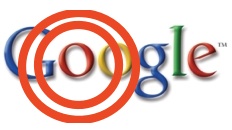
The Federal Trade Commission is seriously thinking about blocking Google’s proposed $750 million acquisition of AdMob on antitrust grounds. A decision on whether this is where the government will make its antitrust stand against Google is expected in the next few weeks. But before the FTC makes that decision, it might want to take a look at Apple’s new licensing terms for iPhone developers. If I were Google’s lawyers, that would be Exhibit A to show how little market power AdMob and Google really have when it comes to mobile advertising.
In order to show that an AdMob-Google combination raises antitrust issues, the FTC would need to show how it would impede competition. Last year, the mobile ad market share of Google and AdMob combined was an estimated 21 percent. Google’s portion is mostly in mobile search, whereas AdMob’s is mostly in mobile apps, specifically iPhone apps.
But that was before Apple (which tried to buy AdMob) bought another mobile ad network, Quattro Wireless, and announced the impending launch of official Apple iAds for the upcoming iPhone OS 4.0. While other ad networks are not barred specifically from the iPhone and iPad, language in the terms of service (TOS) could effectively neuter them. Section 3.3.9 of the iPhone Developer Program License Agreement prohibits apps from containing third-party software that collect and send data to other companies and services “for processing or analysis.” (The agreement also block other third-party analytics and development tools like those used to make Flash apps). If ad networks like AdMob cannot collect data from the apps which use them, it makes it very difficult to serve and target ads.
Any analysis of the mobile advertising market must take into account not only ads on the mobile Web, but also ads inside apps. And when it comes to ads in mobile apps, the iPhone is really the only game in town in terms of real revenue. So if the FTC is going to argue that the AdMob acquisition concentrates power in the iPhone ad market by only giving app developers two real choices (AdMob-Google and Apple), it might have to think again. And if two dominant advertising networks is too few, then having only one would be even worse. So maybe the FTC should be looking at Apple instead of Google if it is worried about mobile ad network monopolies.
But that would be absurd. The mobile advertising market is not limited to one device or one OS. The FTC needs to show the potential for Google’s unfair domination of all mobile advertising, which includes the mobile Web, mobile search, and mobile apps. And new forms of mobile search are emerging, as Apple’s recent acquisition of Siri suggests. The broader the FTC defines the market for mobile advertising, the less concentration it will find.
If anything, the quickly shifting landscape in the iPhone portion of the market shows that an early leader one day (AdMob) can be displaced by the whim of an even more dominant rival (Apple) the next.